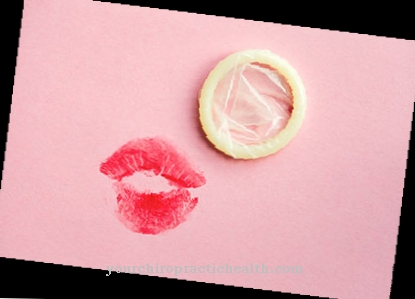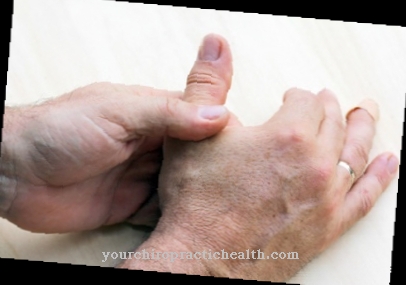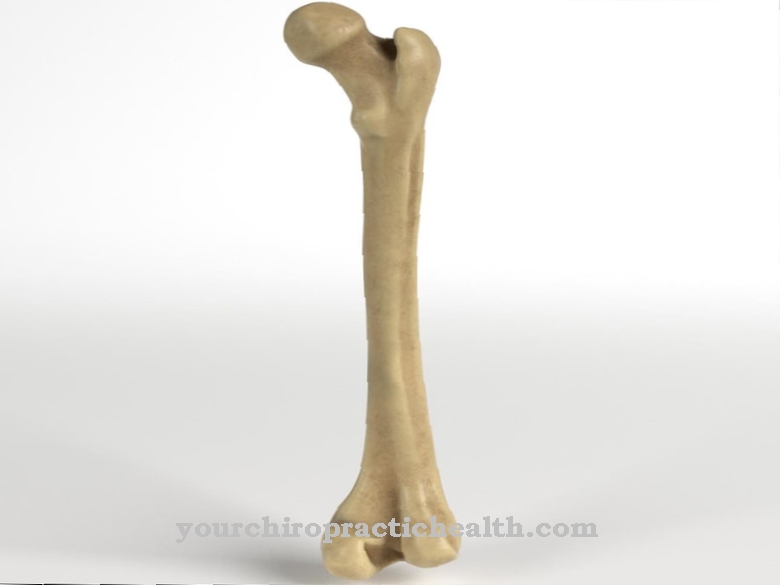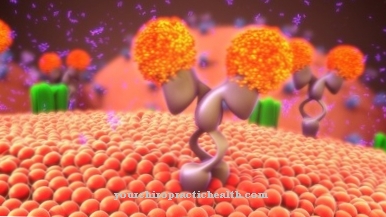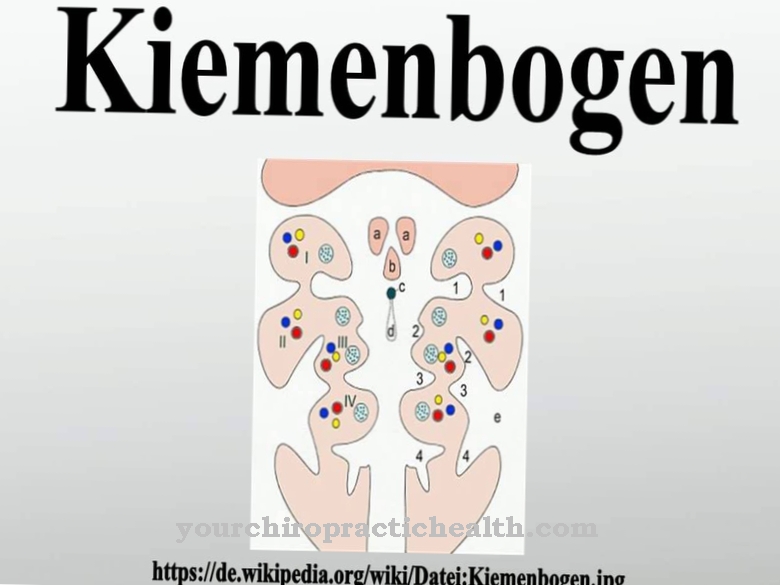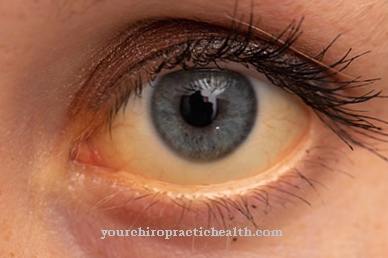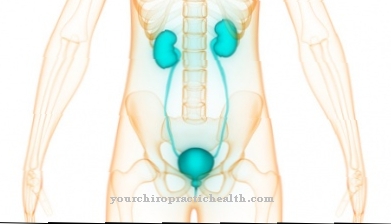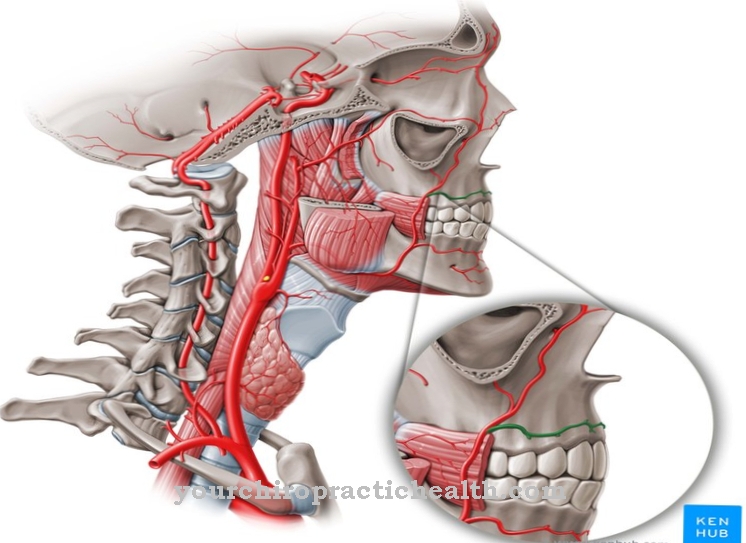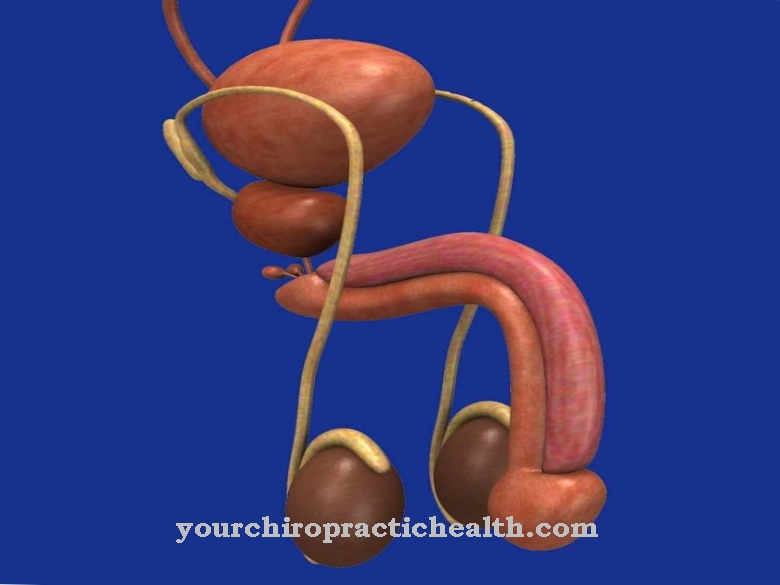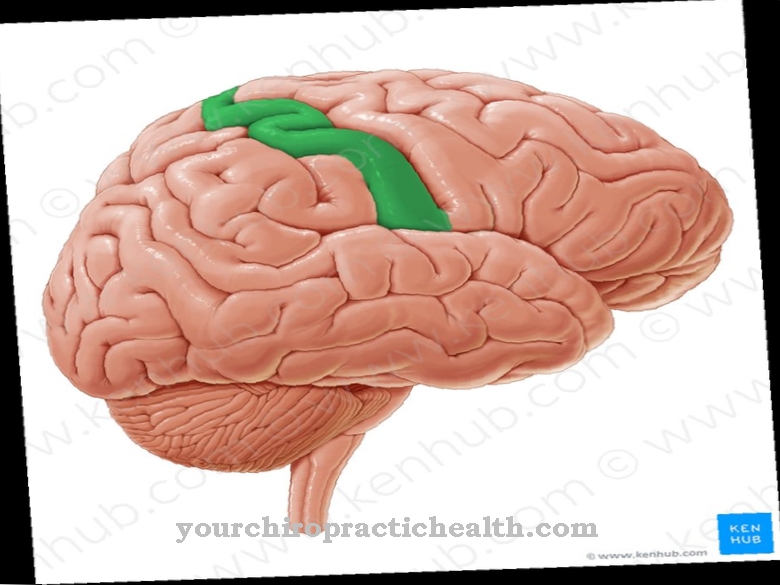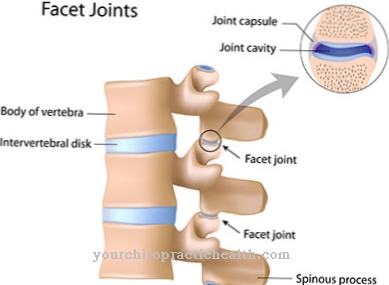A dry mouth is an experience that everyone has had and was able to remedy by drinking. But what if the mouth remains permanently dry or there are even more symptoms such as pain when chewing, swallowing or speaking? Then the doctor speaks of one Xerostomia or. Dry mouth.
What is a dry mouth?
.jpg)
Dry mouth is the subjectively perceived dryness of the oral cavity due to insufficient saliva production or insufficient enzymes in the saliva.
If there is no longer enough saliva in the oral cavity, important functions of the saliva fail and the sense of taste is disturbed. In addition, the oral cavity cannot be adequately cleaned and protected due to the lack of enzymes, which leads to complications such as dental problems, bad breath, pain or frequent inflammations in the oral cavity.
In cases where dry mouth is a symptom that occurs over a long period of time and cannot be remedied by hydration, it is called xerostomia, pathological dry mouth that should be discussed with a doctor.
causes
The causes of dry mouth are manifold and result either in reduced saliva production or in the changed saliva composition with the lack of important enzymes that protect the oral cavity.
Causes of dry mouth that are easy to rectify and are therefore harmless are lack of fluids and frequent, long breathing through the mouth, for example in the case of [colds].
The dry mouth can also occur as a side effect of medication. Diuretics, psychotropic drugs, anticholinergics, antiallergics, antihypertensive drugs, and atropine are known to be causative drugs. The risk of illness increases with the number of medications to be taken, especially in older patients and in poor general condition. About 40 percent of people over 60 are affected by xerostomia.
Other causes of xerostomia are impaired chewing function, triggered by oral mucous membrane or dental diseases, fungal infections and oral rot. Autoimmune and metabolic diseases, such as Sjogren's symptom or diabetes mellitus, emotional stress and mental illnesses, Dysfunction of the adrenal glands and diseases of the salivary glands. Radiation therapy and chemotherapy can also trigger dry mouth.
You can find your medication here
➔ Medication for bad breath and bad breathDiseases with this symptom
- Diabetes mellitus
- Mouth rot
- Sjogren's syndrome
Diagnosis & course
Since dry mouth can have various causes, patients should first see a general practitioner. They will ask about the probable causes and other complaints. In addition, two examinations are necessary in order to be able to make a diagnosis:
1. The measurement of the saliva flow rate, the most informative examination method. The doctor defines the saliva production at rest and after stimulation.
2. The examination of salivary glands and lymph nodes, oral mucosa and oral cavity.
If no clear cause can be found after this examination, further diagnostic procedures follow. This includes the examination of the saliva in the laboratory, a pathogen smear from the oral cavity and X-ray examinations of the skull area. In some cases, x-rays of the salivary ducts with contrast media will be necessary. A blood test may be done to rule out other possible causes of the dry mouth.
Depending on the diagnosis, the general practitioner will refer you to the specialist responsible. With an early examination and diagnosis, complications such as dental problems can usually be stopped, as these are the basis of a good therapy for xerostomia.
Complications
For example, a dry mouth is caused by heavy smoking. Chronic bronchitis can develop from high levels of nicotine consumption. This clogs the airways and gives the person less air. It can also cause the lungs to over-inflate and develop emphysema, which makes breathing worse.
This condition is also known as COPD (chronic obstructive pulmonary disease) and is associated with high mortality in Germany. The nicotine also breaks down the lungs, so that this also promotes shortness of breath. It also increases the risk of developing lung cancer.
Mouth dryness can also occur as part of Sjogren's syndrome. In addition, 5 percent of those affected develop cancer of the lymph glands (malignant lymphoma). Diabetes can also cause dry mouth. The secondary diseases are feared. Diabetes causes blockage of smaller vessels and arterioles, so that there is insufficient blood flow, especially to the eyes and kidneys.
The affected diabetic can become blind (diabetic retinopathy) if the disease is not treated early. The kidneys can also become weak, which can then end in failure (diabetic nephropathy). Nerves in the foot can be affected that no longer transmit pain signals and an ulcer can develop as it is often not discovered.
When should you go to the doctor?
People who persistently suffer from dry mouth should consult an appropriate doctor. If you forego a visit to the doctor at this point, you run a great risk. Food intake is severely impaired, as the necessary saliva can no longer properly decompose ingested food. In addition, there is pain when swallowing and the mucous membrane can also be injured.
Infections can develop very quickly from injuries to the mucous membrane, as bacteria and viruses can easily multiply in the affected areas. Therefore, anyone who suffers from dry mouth should pay attention to strict and meticulous oral hygiene. In general: Anyone who comes to treatment early with a permanently dry mouth is definitely on the safe side. In this way, serious underlying diseases can be identified early enough so that appropriate medication can be prescribed.
If there is already an inflammation in the oral cavity, a visit to the doctor is inevitable. It may even lead to the formation of an abscess that, if left untreated, can cause blood poisoning. Of course, in such a case there is an acute danger to life, so that a visit to the doctor should not be put off on the long bench. A doctor can very quickly determine the cause of dry mouth and treat it appropriately.
Doctors & therapists in your area
Treatment & Therapy
The dry mouth can only be treated symptomatically. The therapy depends on the cause, so the underlying illnesses that cause it must be treated, and sufficient fluid intake must be ensured.
Sour drinks, candies or chewing gum that stimulate salivation can be helpful, and the mouth should also be rinsed out regularly with water or sugar-free tea.
If a drug causes xerostomia, the treating physician must decide whether it can be discontinued or replaced.
If these measures do not help, the patient can get relief from dry mouth with mouthwashes, mouth gels or mouth sprays. There are also artificial saliva solutions that have a similar composition to natural saliva and contain salivary enzymes that are important for protecting the oral cavity.
Outlook & forecast
A dry mouth can be supplied with sufficient fluids and saliva-stimulating foods without medical treatment. Sucking candy or chewing chewing gum are considered stimulating ways to stimulate salivation and counteract dry mouth.
If the mouth remains dry and is triggered by the administration of medication, the symptoms are alleviated when the medication is discontinued. The medication should not be discontinued on one's own initiative. Consultation with the attending physician is necessary.
If diseases of the salivary glands or the oral mucosa are responsible for the dry mouth, there are good chances of recovery. Medical treatment leads to the desired success for most patients.
If there is a lymph gland disease, the prognosis of the dry mouth depends on the disease. A viral infection or inflammation is treated with medication and usually leads to a full recovery within a few weeks. Cancer has a good chance of recovery if the diagnosis and treatment are carried out early. In a late stage or if the cancer spreads, there is a mortal danger.
If the dry mouth is triggered by heavy smoking, there is a regeneration of the saliva flow with the cessation of nicotine consumption. The same happens when consuming alcohol or other stimulating substances.
You can find your medication here
➔ Medication for bad breath and bad breathprevention
Dry mouth cannot be prevented to a sufficiently protective degree. However, the patient should remain in close contact with his or her practitioner to discuss the correct medication and dosage. In addition, regular dental checks are essential in order to identify and treat dental problems in good time. Although the dry mouth cannot be cured, it can be stopped in its course with inflammation of the mucous membrane and tooth problems.
You can do that yourself
A dry mouth can have several causes. Accordingly, there are different interventions that can be integrated into everyday life to counteract the problem. A dry mouth can be significantly influenced by diet. Above all, it is important to have sufficient fluid intake to supply the mucous membranes in the mouth with moisture. Water and tea are recommended. Acid teas such as mallow or rose hips have a particularly stimulating effect. Food such as fruit, soups and liquid dairy products can also promote salivation.
It is important to chew frequently while eating. The more often you chew, the more the saliva production is stimulated and the less dry the mouth is. There are foods that remove moisture from the oral mucosa. These include alcohol, coffee and very spicy foods. These should therefore be avoided as much as possible. We recommend chewing sugar-free gum or sucking sugar-free candy between meals. These also stimulate saliva production.
In addition to nutritional factors, the ambient air also influences the dryness of the mucous membranes. It is important to ventilate at home and at work regularly in order to counteract dry ambient air. It is also necessary to be sufficiently outside in the fresh air. Smoking should be avoided as much as possible. Nicotine inhibits blood flow and has a negative effect on saliva production.








.jpg)
